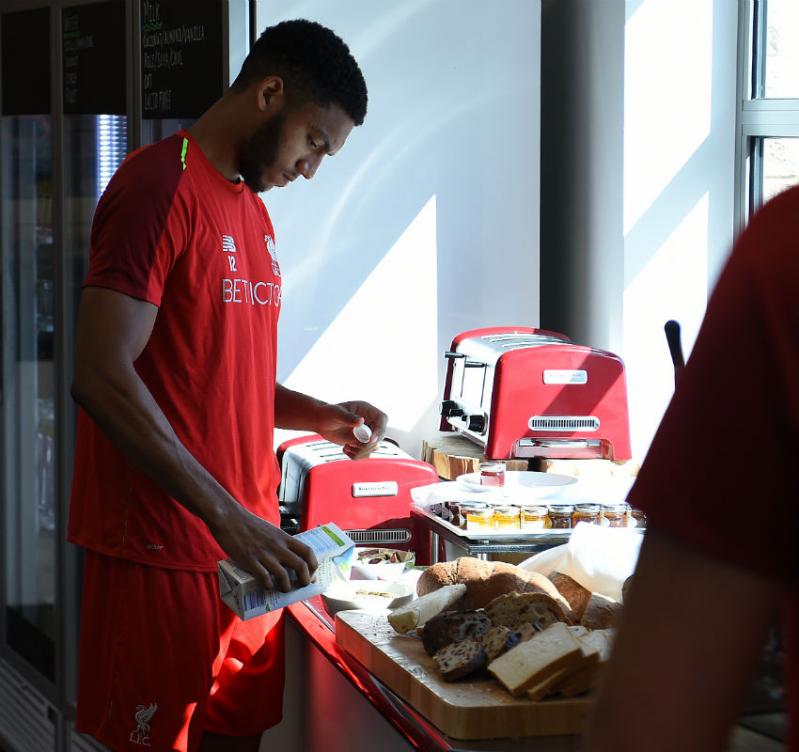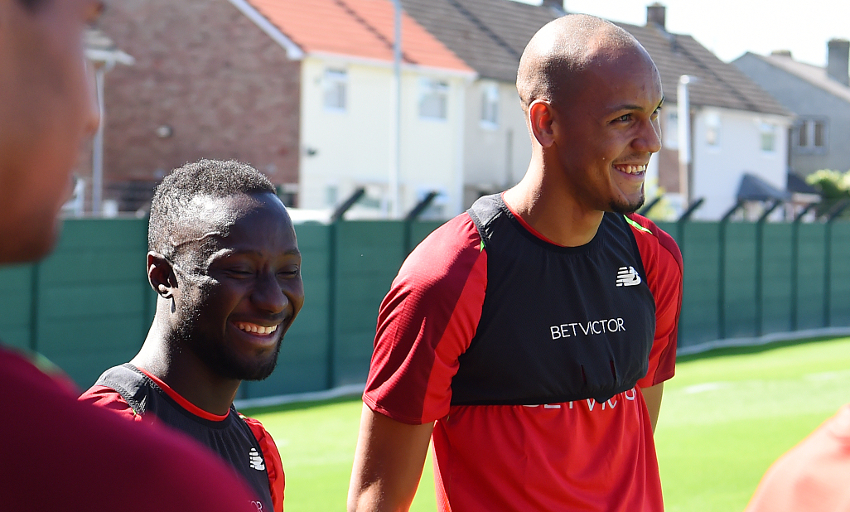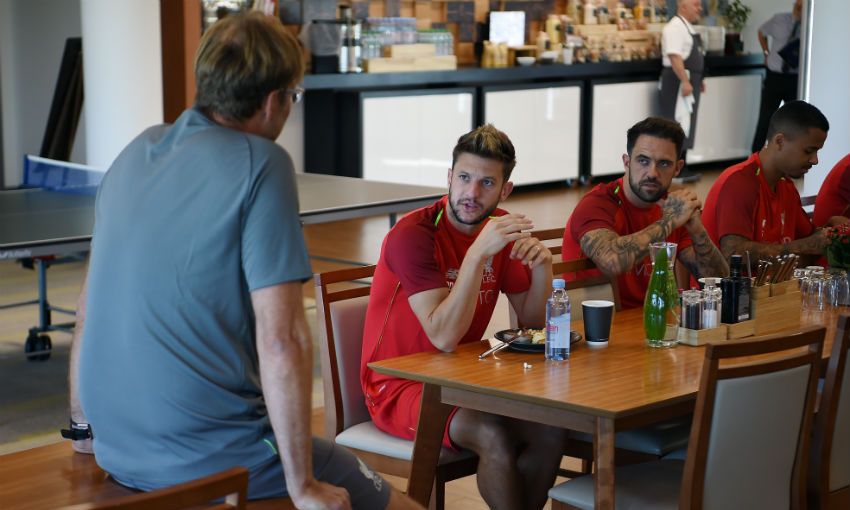'It's like the inside of a watch': A guide to LFC players' pre-season nutrition
For Liverpool's players, pre-season is a time of rigorous physical tests, double training sessions and friendly matches played both at home and abroad.
It is, it’s fair to say, an intense period; a six-week spell designed to put the foundations in place for success in the subsequent nine months.
For this to be the case, though, members of Jürgen Klopp’s squad need to take the necessary nutrients on board.
Mona Nemmer, Liverpool’s head of nutrition, ensures the Reds are fuelled with the right things all year round, of course.
But do the players’ requirements change in pre-season? Are they asked to stick to nutritional programmes before reporting back to Melwood? And how does Nemmer work with other members of staff to help integrate new signings into life at the club?
Liverpoolfc.com sat down with Nemmer in the training ground’s canteen for a chat recently to find out the answers to these questions and more…
]
First of all, Mona, how do the players’ nutritional requirements differ in pre-season to during the season itself?
Well of course in general our nutrition recommendations and planning for catering and hydration always depends on how much the players train, how much the players are playing, and it also relates to the weather conditions and the physical stages. So it’s sometimes not too easy to say ‘we do it for pre-season only like this or that’.
So, for example in relation to our trip to the US, we’re going to have different weather conditions than we normally have here in the UK - although it’s a bit warmer here at the moment than normal! Also, all the players are coming back from holidays, there have been a few players who have attended the World Cup, so they have different physical constitutions where we try to take care [of them].
I think the main difference is that we mostly train twice a day, so that means anyway there is a bigger point of fuelling. But it’s hard to compare because if you are in the normal match programme, when we play Saturday, Tuesday or Wednesday, Saturday… at the moment we get the players back well recovered and relaxed. We always try to react on a week-to-week basis, where we can estimate how the endurance factor is, how their sleep is going, which we can try to fit in nutrition points to be supportive.
Exactly how much of a difference does the weather make to what the players need to eat and drink?
That actually has a big influence on the performance. Our bodies mostly consist of water so the hotter it is, the more fluid intake is necessary. But not only fluid intake, it’s also the micro-minerals that you lose in sweat, so to keep your complete metabolism and all the processes running, it’s a bit like the inside of a watch where all the little wheels are working and turning around.
Also, this is a factor where we try to help to avoid a player getting injured or ill or dehydrated, so definitely there are things that we try to avoid. We try to make it as simple as possible for the player because pre-season is normally a bit harder anyway from a training point of view.
Watch the Reds train in the Melwood sunshine
Do you ask the players to do anything specific nutritionally over the summer before they report back for pre-season training?
It’s interesting because we have various groups. We have players who go on holiday, which is well deserved, and we have players who go on national duty but without tournament duty, and then we have players that go to the World Cup. That means we have three different groups to categorise - so players who have played more games than others, or players who have suffered with injuries, players who are more tired or less tired. This means that they all need to be treated differently.
We always try to have a look at the whole picture and then of course we react. So there are players who ask for nutritional support [over the summer], which can be anything - it can be a plan, or a special supplements package, or it can also be a chef who travels with them, which is a very special kind of support. We can help the player in any way to keep him stable and balanced, and also to make sure that nutrition is not something that bothers him. But there are also players who simply don’t need any big support; they know what is good for them, they know how to deal with an off-season, they know how to deal with their training sessions they plan themselves.
So it’s quite individual. Whenever we come to the end of a season, we start from new in planning these things. We can’t use the sheet from last year and say ‘we’ll just do it this way again’, so we try to always be on top of that and be really careful in observing what the players’ individual needs are.

Jürgen Klopp on Fabinho and Keita's first week at LFC>>>
And finally, do you speak with new signings individually about their nutrition when they arrive at the club?
When players arrive here at Melwood everything is new to them and there are a lot of things to do and a lot of people to get to know. When I meet them, first I introduce myself and what our department has to offer, [and tell them] that the door is always open for them. And then there is a situation where they try to find out and we talk. It’s not only the nutritional support in terms of consulting conversations, it’s more about things like they’re moving into a new house, so do they need some equipment? Is the fridge full already? Where is the nearest place they can buy food? Do they need to take packed food from here?
So at the end, it’s like trying to welcome them in every way, not just with the nutrition. And of course, with the tests we are doing, the measurements we are doing, we get a closer idea about what could be an individual need or issue that we can support or help or getting an improvement.
We don’t want to overdo it, but the fact is we are all so close together here and they are eating four times a day here, so it’s sometimes quite easy to approach them. We can say: ‘Hello, what do you need? How do you feel? How is it going today? Are you suffering from the last training session?’
It’s so great that I’m here every day, so we don’t need to make big appointments and it doesn’t feel forced on the players so they don’t think: ‘Oh, I have to see the nutritionist now and I have to tell her that I’ve eaten a piece of chocolate’! I think that’s quite a big advantage from this environment here.



